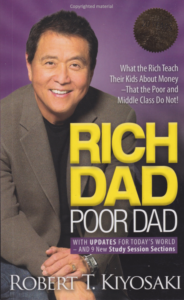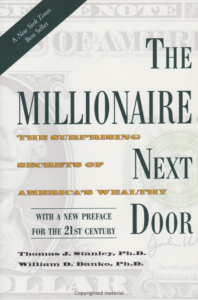I have always subconsciously lived by the FIRE philosophy. Personal finance has always attracted my attention.
The quote “Spend less than you earn and invest the difference” speaks volumes for me, as I have never spent more than necessary. I first saved “The difference” and later in life I also started investing (life lesson : if only I had started investing earlier).
Let me first put your feet on the ground : FIRE is not getting rich quick, it’s a long-term trajectory. To retire earlier, you have to do something for it, it doesn’t just fall out of the sky.
Assets & liabilities
The goal of FIRE is to build up assets where you can support yourself with passive income, which is income coming from investments. Here you can calculate approximately how much capital you need.
It is important to know the difference between assets and liabilities :
- Assets: these are your possessions, and you can divide them into possessions for your own use (for example, your own home, car, jewelry, furniture, and so on) and investments (stocks, mutual funds, second home that you rent out, your own business, and so on). Cash in the bank is also part of your assets.
- Liabilities : these are usually installment payments and/or loans such as the mortgage for your own home and/or second home, car loan, personal loans, credit card debt, loan to friends or family, etc.

Robert Kiyosaki, author of the book “Rich Dad, Poor Dad,” looks at this another way :
- Assets bring in money. For example, capital gains and dividends from ETFs (Exchange-Traded Funds), apartment rent, own business, and so on. Your assets can grow in the long term.
- Liabilities cost you money. Some examples of liabilities are your own home mortgage, costs for one or more cars, loan for the latest new phone, and so on.
For Robert Kiyosaki, the mortgage for your own home is not an asset but a liability! Why? It does not bring in any money.
Will Rogers
First you need money to invest. By living below your means, this means spending much less than you earn, you can free up money in your budget to invest.
Too many people spend money they haven’t earned, to buy things they don’t want, to impress people that they don’t like.
Will Rogers
The quote from Will Rogers sums it up nicely :

- Avoid consumer credit, on which you usually pay (a lot of) interest. In the blog post Pay off debt I give you some tips on how to get rid of debts.
- Watch out for lifestyle inflation. Some people spend more when they earn more during their career. For example, a bigger house, a more luxurious and larger car, and so on. The book “The Millionaire Next Door” was an eye-opener for me!
Each time I make a purchase, I ask myself the question : do I really need this? Will it make me happy? Is there a cheaper or free alternative?
When I really need the purchase, and/or it makes me happy, then I buy it!
I also pay attention to quality and durability. For example, I have a (more expensive) oak coffee table that is 15 years old, it still looks like new (even with 2 kids 🙂 )
Economize
First, start by taking care of the biggest expenses, being housing/transportation/food. Then, go over the smaller expenses, such as shopping, streaming subscriptions, online purchases, daily coffee on the go, and so on.
The trick is to build up equity, by saving and investing, while enjoying the moment. You can do the latter without spending too much. You can go for a walk or a bike ride, travel with the tent, a day at sea with the fridge box, a dinner in the garden or on the terrace, etc.
This info is for informational, educational and entertainment purposes only, and does not constitute financial, accounting, or legal advice. Please do your own research (disclaimer).
